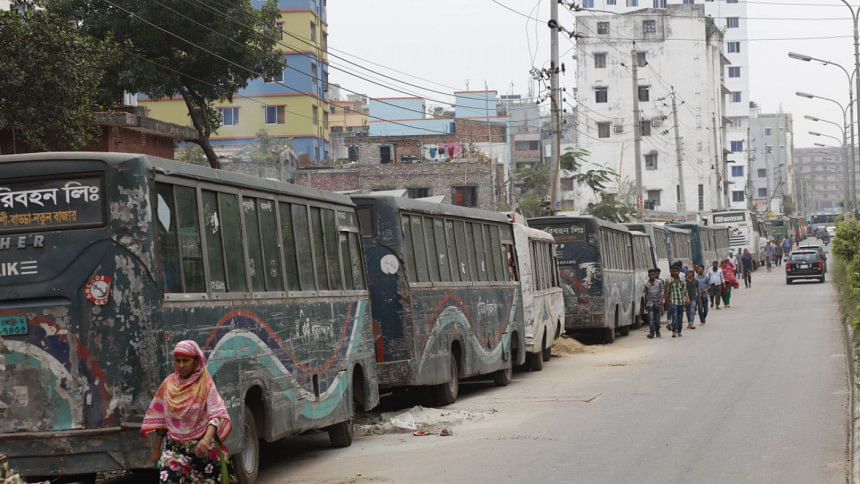Are the citizens being made pawns?

There are two mind-boggling and brain-wracking issues for the citizens. One is the transport syndicate 'proving more powerful than the government' in connection with an enforcement drive against buses defying some 'corrective measures.' And the other relates to the tannery or leather industry's neither-here-nor-there syndrome even after a decades-old relocation saga.
Well, what are the similarities between the two? First, they represent serious public interest, though in varying degrees. They were badly thought out plans and, even though well-intentioned, have been poorly executed. Both smacked of inadequate and unwilling participation of the stakeholders. When consequential changes are set afoot a thorough-going consultative process must precede it. Alas, that was not the case!
The communications minister refutes the suggestion of buckling under pressure from transport owners but frankly admits they have clout that is not so easily ignored. That speaks a lot about their power of taking passengers hostage by playing on their desperation to travel and blackmailing the authorities with a threat of partial or massive standstill in public transport services.
A palpable feeling is that immediate transport problems have always been sidelined by the hype on megaprojects. While the latter turn a distant dream under piles of time and cost overruns the inadequacy of the present transport system grows exponentially.
As for the relocation of tanneries, the agenda after a long-stretch frothing and fuming has come to a misshapen outcome. After several time extensions and the minister's persistent efforts, a relocation from Hazaribagh to Savar has happened. We may draw a sense of satisfaction from that fact. Yet, the sea change we had been looking for remains quite some distance away.
The workers of Hazaribagh are out of work; they are agitating for reinstatement in the Savar location. For the government and the tannery owners this presents a challenge; but to the abandoned workers it's a question of daily subsistence. Humanitarian and right-to-work issues call for rehabilitating them in the new industrial location. There's a caveat though. Persons to be taken on the list for employment would need retraining to fit in with the modernisation plan that the new unit owners will surely opt for. An important issue relates to cleansing the abandoned sites in Hazaribagh—a task hardly receiving any attention at the moment, let alone, any action on the ground.
Pollutants from Hazaribagh had spoiled the Buriganga and now the Savar-based industries are threatening to spoil another river, namely the Sitalakhya. The two lifelines to the city are thus panting without oxygen to survive. A rejuvenation programme should be on the anvil with assistance for such a project may not be wanting from development partners.
The new location at Savar is yet to be equipped with power and gas connections. When it will be up and running dangles as a question mark. In Savar, the effluent service is an apology for it. Unfortunately, there are no templates or guidelines provided for the management at a time when foreign buyers are evincing a keen interest in placing big orders with what they expect to be environmentally sound manufacturing houses emerging in Savar.
Relocation must not end up being a drop from the frying pan to the fire. A serious inadequacy in the infrastructure will leave room for error. That in turn could lead to disastrous consequences which the relocation move in the first place was undertaken to avert.
In the transport sector, the battle between the Goliath (transport owners and their associates) and the Mouse (commuting public, surprisingly in what we claim to be a democracy) must yield place to a triumph of social commitment and public service.
The hippocampus in the brain is said to be storing short-term memory, and it is in a dialogue with the cortex that has to do with long-term memory. We must try to help the fusion of the two to allow for a clear-headed conduct of human affairs.
The writer is a commentator on current affairs and former Associate Editor, The Daily Star.
E-mail:[email protected]

 For all latest news, follow The Daily Star's Google News channel.
For all latest news, follow The Daily Star's Google News channel. 



Comments